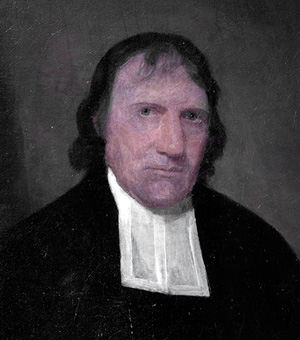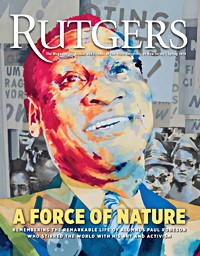William Linn
Queen’s College President Pro Tem, 1791 to 1795

A gifted preacher, William Linn, of Pennsylvania was described as “a most ardent and impassioned” minister. He graduated from Princeton in 1772, was ordained by the Donegal Presbytery in 1775, and served as a chaplain in the American army during the Revolution before being called as pastor of the Presbyterian Church in Big Springs, Pennsylvania, in 1776. Linn remained at Big Springs for seven years before he moved to Maryland to become the principal of the Washington Academy. He left teaching to return to the church in 1786. In 1787 Linn was appointed a trustee of Queen’s College, where he assisted Hardenbergh in securing subscriptions for the new college building, and when adequate funding for the college appeared remote, debated with his fellow trustees the merits of merging the college with that of Princeton.
William Linn was described as “a most ardent and impassioned” minister. He served during a time when adequate funding for the college was remote and trustees debated the merits of merging with Princeton.
Though nothing came of the proposed merger, the church synod raised the possibility of moving the college closer to the large Dutch population in northern New Jersey and New York, a prospect that favored the union of the college with that of the Professorship of Theology, then languishing with the Collegiate Church in New York. The trustees, cognizant that the synod’s plan would mean an end to the college in New Brunswick, nonetheless chose to remain and, with meager resources and diminishing prospects for the future, soon closed the college in 1795. For the next 12 years, Queen’s College was to remain dormant.
The Reverend William Linn’s service as acting president and trustee of the college also came to an end. His interest in education continued as he completed his 21 years of service as a regent of the University of the State of New York shortly before his death in 1808.
This biographical sketch was authored by Thomas J. Frusciano, Rutgers University Archivist. It originally appeared in The Journal of the Rutgers University Libraries.

